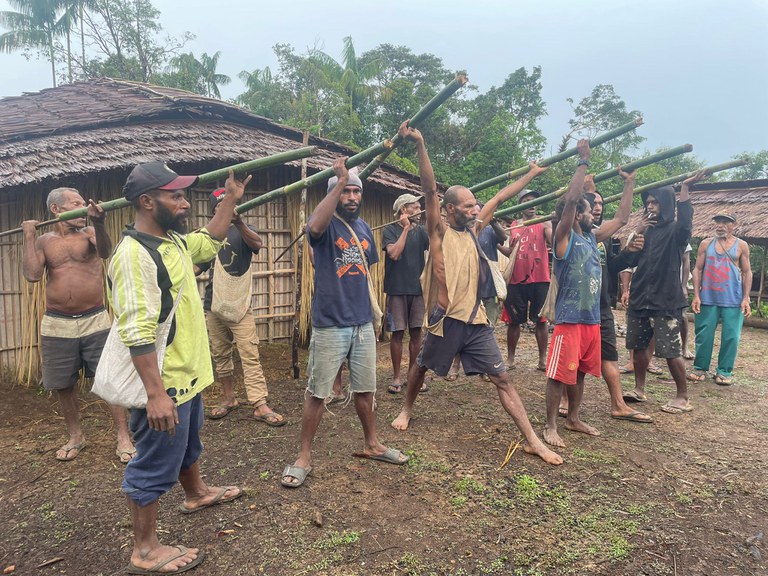In the remote highlands of Indonesia's Papua region, the Kimko Jinipjo clan recently convened for the "Awon Atatbon," a traditional pig feast ceremony. This gathering, held in the secluded village of Kurinbin in Boven Digoel Regency, serves not only as a cultural celebration but also as a powerful assertion of ancestral land rights. The ceremony stands as a form of resistance against government-backed agricultural projects and the escalating threats of deforestation.
The "Awon Atatbon" is deeply rooted in the traditions of the Muyu-Mandobo people. Historically, this pig feast has been integral to their cultural identity, encompassing rituals, songs, dances, and ceremonial performances. However, the tradition has faced the risk of fading as younger generations become less engaged. The recent ceremony marks a significant cultural revival, aiming to reconnect the community with their heritage and reinforce their bond to the land.
The urgency of this cultural reaffirmation is underscored by the Indonesian government's plans to clear up to 2.7 million hectares of forest and peatland in Boven Digoel, Mappi, and Merauke regencies for a controversial food estate project. While intended to bolster national food security, critics argue that such projects often overlook indigenous land rights, accelerate deforestation, and threaten the livelihoods of native communities.
The Kimko Jinipjo clan's revival of the "Awon Atatbon" ceremony is a poignant reminder of the intrinsic connection between indigenous communities and their ancestral lands. By embracing traditional practices, they not only preserve their cultural identity but also send a clear message of resistance against external threats to their heritage and environment. This movement echoes broader concerns across Papua, where indigenous groups are increasingly organizing to protect their rights and territories from encroachment.
In conclusion, the "Awon Atatbon" ceremony exemplifies the resilience of the Kimko Jinipjo clan in the face of modern challenges. Through cultural revival and communal solidarity, they stand firm against initiatives that jeopardize their ancestral lands and way of life. Their actions highlight the critical need for development projects to respect indigenous rights and for policies that harmonize progress with cultural and environmental preservation.
Read More






 Monday, 26-01-26
Monday, 26-01-26







